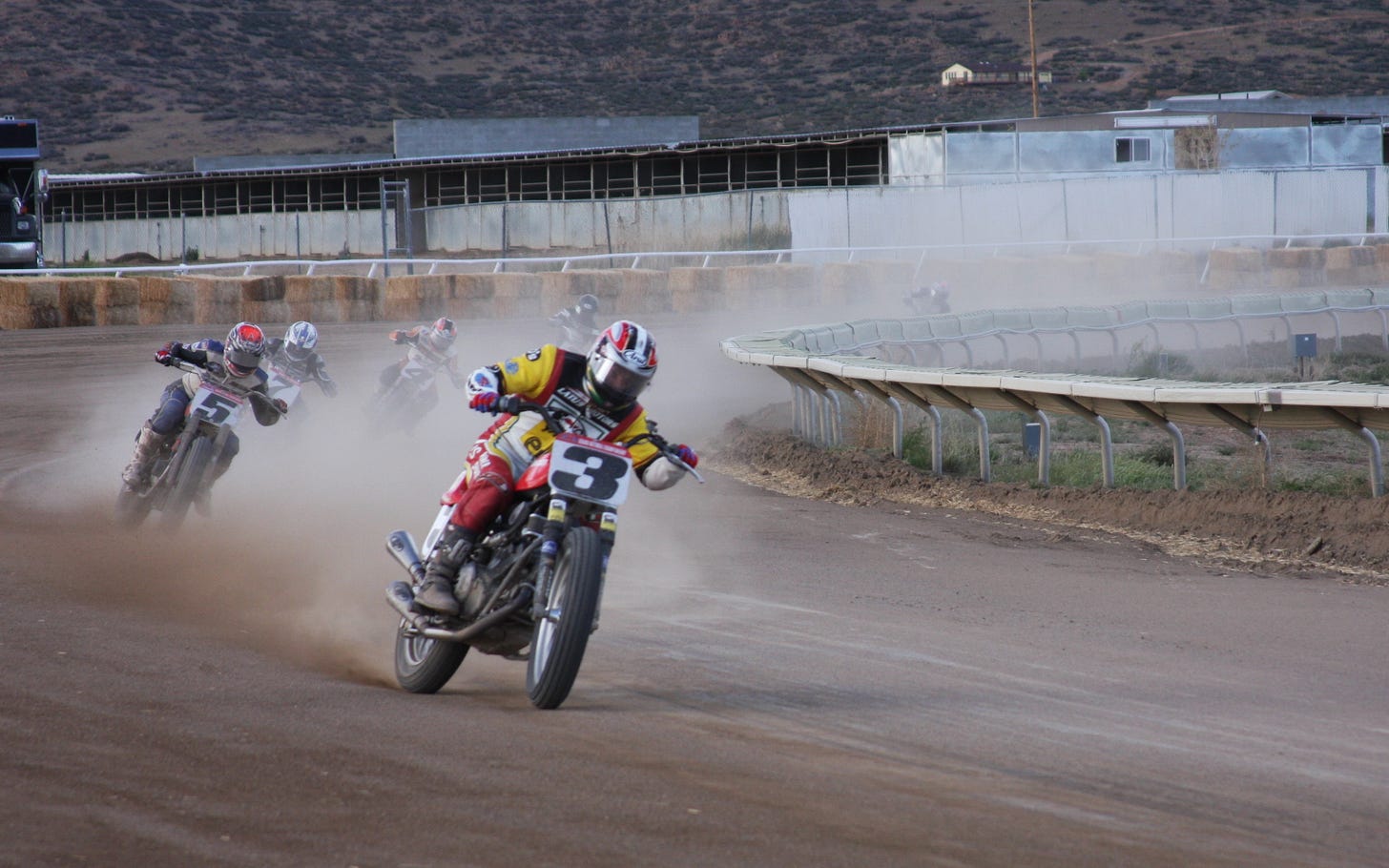About ten years ago, I received a text message from a friend and former coaching client, "Smokin'' Joe Kopp. While you may not know Joe, he is one of the most well-known and accomplished Flat Track motorcycle racers, ever. In fact, in that form of motorsport (which I think is better for spectators than any other form), Joe has an almost cult-like following.
Here is Joe's text to me:
"I rode the final dirt track National of the year last weekend in Vegas, as it was my only National for the year. I ended up 2nd overall in the Main. The boys didn't know what hit them when I came out of the gate swinging and was 2nd fast in the first practice session. But then it was too late for them to figure me out and catch up. LOL. I just wanted to let ya know that I still do so many mental imagery things even though I don't race full time anymore. It's not like I train mentally as much as I used to, but I still am non-stop thinking about mental imagery and such. Over time I've learned how and what to do much more proficient with mental training. I'm sure you know exactly what I'm talking about. I'm thankful for everything you taught me."
With that, let me share my story with Joe.
Joe Kopp won the AMA Flat Track Grand National Championship in 2000, and then between 2001 and 2007 he went from 2nd to 7th in the championship. By the time I started coaching Joe at the end of 2007, he was seriously considering retiring.
He was at a point, at the age of 37, where he felt that he couldn't keep up with the young kids who were "willing to die to win," as I recall him saying. He "knew" he couldn't keep up anymore. I challenged him to look at the following season, 2008, as an opportunity to learn — and that was it. It wasn't to prove whether he could compete with the young kids, it wasn't to see how many wins he could get, it wasn't even to win the championship. What could he lose? He would either take on my challenge of focusing on learning, or retire.
Almost ironically, 2008 turned out to be his best year ever for wins (4) and podiums (10), and he finished 2nd in the Championship. Of course, by this time, there wasn't a hint of retirement talk from Joe. In fact, he was having more fun than ever.
It was much the same in 2009, with an additional distinction: by missing out on winning the Championship by just one point, he was part of the closest 3-rider points chase in series history. In fact, he went into the final race of the season with a solid lead in the championship, only to have a mechanical failure, which resulted in his finishing second.
But there was no doubt in his mind — or anyone else's that knew what was going on — that the mental game training program Joe was using was working. At 40 years of age, he was still the man to beat, and the young kids were doing everything they could to do just that.
Joe did retire from full-time competition at the end of 2010, having again finished second in the Grand National Championship that year. It was time for Joe to focus more of his attention on his son's racing, and helping the younger riders on the team he had raced for. But, like so many racers, he couldn't leave racing completely, and since 2011, has raced in a few one-off events. And as his text to me mentions, he was still damn competitive!
Why? How can a racer in his forties compete with young riders who are "willing to die to win?" Let me share some of what he did to stay so competitive, for so long.
To start, I should mention one thing. Joe applied and worked at the mental game program (that I laid out and coached him in) better than almost anyone else. One other race driver comes to mind when I think of the commitment to doing what it takes.... But, as you know, working hard at the wrong thing will not give you the results you want, nor will having the commitment without the program to be committed to.
Oh, and it’s probably obvious, but I’ve never raced a motorcycle, so there was no way I could coach Joe about the physical techniques for flat track racing. My job was to help him perform consistently at his best, where he used every last ounce of his abilities.
A Way of Life
When Joe mentions in his text, "Over time I've learned how and what to do much more proficient with mental training. I'm sure you know exactly what I'm talking about," I do know exactly what he's talking about.
Joe had taken the program that I had given him, and made it a way of life. At the beginning, it felt odd, uncomfortable, and even a bit weird to him – maybe even too “woo-woo”. But the more he used the "tools" that I'd provided, the more natural it became. It was less of "I have to do this," and just became "what I do."
What Program?





